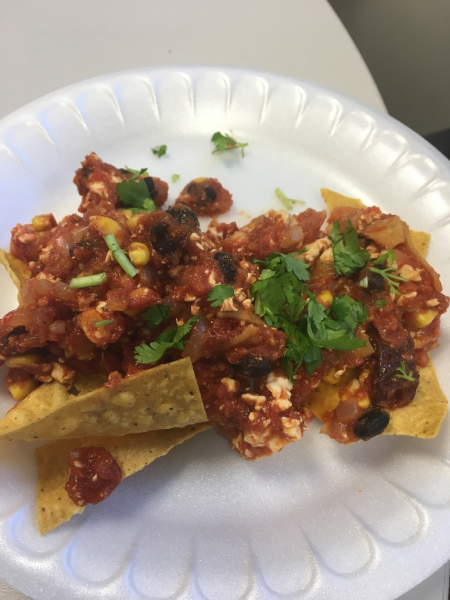As I begin to wrap up my last few weeks of service (time flies!), I have been reflecting on the meaningful conversations and interactions I have had with the Northwest Chicago community. These people have impacted my life in more ways than one; but most of all, my year of service has shown me something a bit paradoxical, but increasingly important: the value of keeping things the same to create change.
One might find my take-away a tad conventional, especially in public service settings. Sometimes I just get immensely frustrated at my lack of control to create sustainable changes even with the bountiful resources that my clinic provides- classes, counseling, handouts, exercise routines. While these resources may help some people, for the majority of communities that are racially or ethnically diverse, there is a grand lack of resources that are applicable and accessible in the scope of behavioral health.
Providing behavioral health services such as nutrition counseling and stress management support has shown me the importance of finding tools and techniques that take a culturally specific and personalized approach to behavioral change.
When was the last time a picture of the food pyramid showed foods from non-western cultures? Have you ever seen a fitness class being taught in Spanish or Arabic? Are holistic or spiritual resources provided in western medical settings?
"Health" in America is an industry- an industry that caters to privileged socially, economically, and racially. The industry has made health look easy, when in reality the health that is promoted and the green smoothies are merely an attempt to create change in a Western framework.
Serving in a multicultural community like Albany Park, many foods and recipes that are typical'healthy" foods have never been part of many people's' diets. Even fetching from personal experience, bread was seldom found in my household, but rice was abundant. If someone told me to cut out rice, the quintessential staple food of South Asians, it just wouldn't be possible. I have run into similar situations like this- for example, many people have never eaten vegetables in a salad form before. Telling someone of a different culture to completely change their cooking style and foods they eat doesn't serve much purpose other than creating skepticism within a specific community, while inevitably devaluing a culture and history of a community. Addressing mental health concerns in diverse communities is much more complicated than telling someone to relax or practice stress relief techniques, as the stressors in communities of color often vary from western discourse surrounding stress and mindfulness.
 Piecing together these thoughts over the course of my service term enabled me to become more innovative with my health education classes. For example, instead of following the typical recipes done in cooking classes past, I gather a list of favorite meals the patients usually ate, and we tweaked those to make them healthier for people with chronic conditions. For example, many of the patients in my cooking class made chilaquiles as a weekly staple- this time we tried it with tofu instead of meat or eggs-- everyone loved it and it was so easy to replicate at home because their families were already used to it. I also used Spanish meditation resources as a part of a stress management class in the Diabetes class series. As I move on to get my Master's degree in Public health, I want to continue to find more ways to find solutions while continuing to embrace the cultural practices of diverse communities. I look forward to studying the decolonization of behavioral health and how behavioral health practice can be more effective and meaningful for communities of color.
Piecing together these thoughts over the course of my service term enabled me to become more innovative with my health education classes. For example, instead of following the typical recipes done in cooking classes past, I gather a list of favorite meals the patients usually ate, and we tweaked those to make them healthier for people with chronic conditions. For example, many of the patients in my cooking class made chilaquiles as a weekly staple- this time we tried it with tofu instead of meat or eggs-- everyone loved it and it was so easy to replicate at home because their families were already used to it. I also used Spanish meditation resources as a part of a stress management class in the Diabetes class series. As I move on to get my Master's degree in Public health, I want to continue to find more ways to find solutions while continuing to embrace the cultural practices of diverse communities. I look forward to studying the decolonization of behavioral health and how behavioral health practice can be more effective and meaningful for communities of color.
This blog post was written by NHC Chicago 2016-17 member Thamara Subramanian.
Thamara is a Health Promoter at Heartland Health Center - Lincoln Square/Albany Park.
